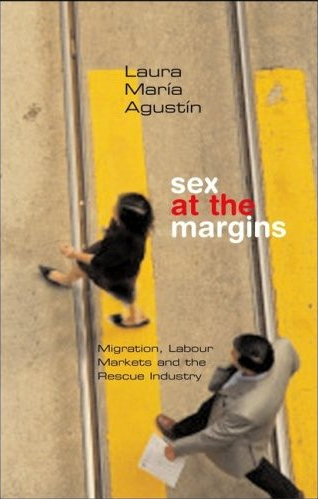“There Can’t Be Numbers:” An Interview With Laura Agustín, Part 1
 Upon the publication of her book, Sex at the Margins: Migration, Labor Markets and the Rescue Industry, anthropologist Laura Agustín became a hero to many sex worker activists. Her research cuts through the usual moral hysteria and emotionality invoked by the idea of trafficking to radically revise discussions about migration and sexual labor. Both her blog (linked above) and her book contain rational assessments of an unfair world in which people exercise choice even when they have limited options; where citizens of developing countries, like citizens of developed countries, have an urge to see more of the world; and where a single story cannot usefully articulate the experience of multiple, diverse human beings. When it comes to her approach, she explains, “I am disposed to accept what people tell me, and believe in their ability to interpret their own lives.” She kindly agreed to answer some questions for us about the current state of trafficking laws, what she calls the Rescue Industry, and public (mis)conceptions.
Upon the publication of her book, Sex at the Margins: Migration, Labor Markets and the Rescue Industry, anthropologist Laura Agustín became a hero to many sex worker activists. Her research cuts through the usual moral hysteria and emotionality invoked by the idea of trafficking to radically revise discussions about migration and sexual labor. Both her blog (linked above) and her book contain rational assessments of an unfair world in which people exercise choice even when they have limited options; where citizens of developing countries, like citizens of developed countries, have an urge to see more of the world; and where a single story cannot usefully articulate the experience of multiple, diverse human beings. When it comes to her approach, she explains, “I am disposed to accept what people tell me, and believe in their ability to interpret their own lives.” She kindly agreed to answer some questions for us about the current state of trafficking laws, what she calls the Rescue Industry, and public (mis)conceptions.
How did you first become interested in the sex industry?
My interest was in the experiences of friends and colleagues in Latin America who wanted to work in Europe. Travelling outside the formal economy meant having very limited choices, and, for women, selling sex and working as live-in maids were practically the only choices. People I knew conversed in a normal way about how to get to Europe and which of the jobs seemed better for them personally. I saw how certain outsiders were focussing on something they called prostitution, but I didn’t understand their anxiety about it. My original question wasn’t about migrants at all but about these people, who wanted to stop others from travelling and stop them from taking jobs they were willing to accept – all in the name of saving them. During my studies I decided that thinking in terms of commercial sex and the sex industry were one way to resist this Rescue ideology.


